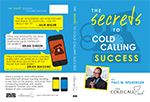“If Relationship George walks through this door, he will kill Independent George. A George divided against itself cannot stand.”
– George Costanza (played by Jason Alexander) in “Seinfeld”
George Costanza is one of the greatest characters in TV history. An unmistakable gift for hyperbole – of blowing minor events into major crises – was among his funniest, most well-crafted traits.
In this classic “Seinfeld” scene, George describes two sides of his personality: Independent George (who his friends know) and Relationship George (who his girlfriend knows). He fears the epic impact of “worlds colliding” should his girlfriend spend time with his friends. Life, as he knows it, will surely end.
Of course, any regular “Seinfeld” viewer knows there’s another side to George’s personality: neurotic.
Nevertheless, George’s rant contains a grain of truth. Everyone does have different sides to their personality.
For most, there’s a professional side, and a personal side. One governs our “work” lives; the other, pretty much everything else. Rule of thumb is that, by and large, the two shouldn’t overlap.
If you’re a salesperson who makes cold calls, and leaves voicemails, this conventional wisdom is (yet again) all wrong.
Chances are your cold call voicemails go something like this: You say “hello,” along with your name and company. You state your value proposition, i.e. the amazing benefits your product or service can provide the recipient’s organization. Finally, you express a desire to talk further, and ask for a callback.
You’re in “professional” personality mode throughout. This is a business call, after all. Aren’t you supposed to be?
Theoretically, yes. Put yourself in the chair of the call recipient, though. Does he/she prefer calls from “professionals” … or from people?
Remember, this person doesn’t know you. The only calls they get from strangers who come across as “professionals” are … salespeople.
As explained in my last article, this is a one-way ticket to voicemail doom. A good voicemail is brief, avoids giving away the hoped-for result, and doesn’t sound like a sales call.
Probably contrary to everything you’ve been taught by “sales trainers,” a good voicemail should embrace your personal side. Yes, this part of you brings value to the picture.
Now, you don’t need to act like a best friend. Just find a way to add a personal touchpoint. Mix it up. Don’t erect a wall between personal and professional.
In fact, build a voicemail script around your personal side. Purely professional always equals “salesy” … and people want calls from people, not “professionals.”
What else should be in the script?
Consider your last trip to a shopping mall. Did you walk through the food court, and see restaurants giving out samples?
Your voicemails should follow the same principle. Give a taste. Entice the recipient to learn more. Your hope is, just like the restauranteur, they’ll end up buying the whole dish.
As I’ve written before, a good voicemail is less about what’s said, than what isn’t said. You’re not trying to close a sale. You just want a callback. Understand what the recipient is accountable for, and whom they want to be speaking with … and be that person.
Best leave any personal neuroses out of the equation. Yes, it’s funny when George Costanza goes off the deep end. He’s a TV character, though … one who always had trouble keeping a job. Don’t let him be your model for cold calling – or, for that matter, lots of other things.



